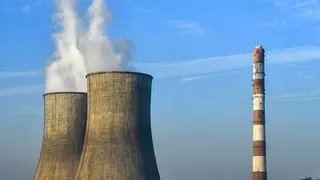The Solvent Extractors’ Association (SEA) of India has asked the companies involved in the manufacturing and marketing of refined palmolein not to resort to unfair sharp practice.
In a letter to the members of the association, Atul Chaturvedi, President of SEA, said that it has been brought to the attention of the association that some companies engaged in manufacturing and marketing of refined palmolein are resorting to unfair practice by packing lesser quantity by weight in 1-litre pack pouches. Such companies are stating that net weight is based on material being packed at 50 degree Celsius.
It is normal practice across industries that volume conversion is done at the temperature at which the commodities are packed. In this case, it is the industry’s uniform practice that weight of refined palmolein is at 40 degree Celsius.
“Since the law on Legal Metrology is silent on the temperature at the time of packing, this loophole is misused by some companies and filling about 7 gms less oil in each 1-litre pouch. This unethical practice needs to be stopped, or else it would amount to duping the gullible consumer and encourage others to adopt such sharp practises which ultimately would tarnish our fair name,” he said.
MUSTARD AREA UP
On mustard cultivation in the country, he said mustard farmers have positively responded this year due to the high price of mustard oil and seed during the sowing time.
Quoting the latest data of rabi sowing, he said there is an increase in the rape-mustard sowing area by about 4.61 lakh hectares from previous year, totalling 73.25 lakh hectares. The current year’s sowing number is higher by about 13.8 lakh hectares compared to normal five-year average of 59.44 lakh hectares.
Stating that mustard crop is shaping up well following the conducive weather so far, he said the harvest is just 4-6 weeks away. The current year’s mustard production could touch 100 lakh tonnes, if the weather continues to remain conducive. This will also augment the domestic availability of oils and bring sanity to the markets, he said.
AGREEMENTS
Seeking the inclusion of proper proviso in ASEAN and other such agreements to restrict/regulate the imposition of export duty/levy by the exporting country, he said this is necessary to have level-playing field for both the sides.
Under WTO, bound rate of duty for soyabean oil is fixed at 45 per cent maximum. “However, exporting countries seem to be free to impose export duty,” he said, adding Argentina has imposed export duty on soyabean, soyabean oil and soyameal and revising from time to time to suit its requirements.
He said India is the largest importer of soyabean oil from Argentina and Brazil. It is, therefore, necessary that this issue be raised at appropriate forum in WTO to restrict/limit the imposition of export duty by the exporting countries to have level-playing field for both the sides, he added.








Comments
Comments have to be in English, and in full sentences. They cannot be abusive or personal. Please abide by our community guidelines for posting your comments.
We have migrated to a new commenting platform. If you are already a registered user of TheHindu Businessline and logged in, you may continue to engage with our articles. If you do not have an account please register and login to post comments. Users can access their older comments by logging into their accounts on Vuukle.